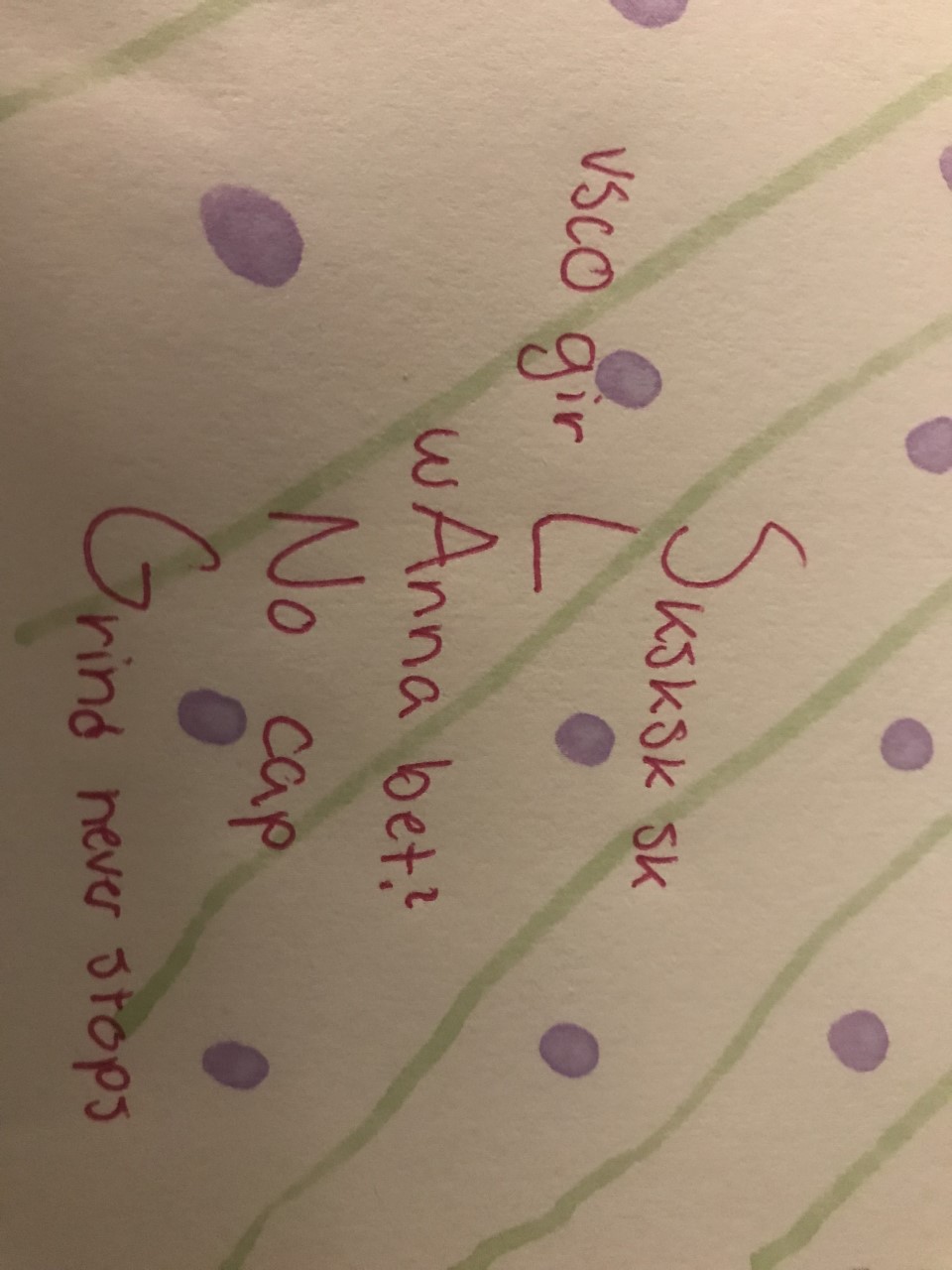If you listen carefully to high school conversations, you will most likely hear some teenage slang. Take a look at what these words mean, how to use them, when to use them, and reactions to slang (photo courtesy of Abigail Mabe).
Teenagers often have a communal slang that they practice in everyday life. If you walk around Leesville Road High School, you will find students speaking words that differ from the teachers’ speech.
“I guess I hear a lot of people saying ‘no cap’ and ‘that’s lit’ and ‘sksksksksksksk’ ‘and I oop’,” said Helena Bunte, an eleventh grader at Leesville Road High School. “Yeah, most other age groups don’t really talk like that. They use actual sentences.”
These slang words differ in meaning than what they sound like. For example, “no cap” could mean anything from “that’s the truth” to “you’re right”, depending on the context.
“ ‘Beat’ is another word for boring, and ‘bet’ is a word used for saying you’re going to do something,” said Jamal Mohamad, senior.
These words could become confusing for teachers and other intelligent adults who are not familiar with the language. “Mr. Broer had to look [the meaning of no cap] up,” said Michael St Louis, an eleventh grader at Leesville Road High School.
“My parents and teachers do not understand the speech we use now. I have to explain almost all the new 2019 speech to my parents,” said Mohamad. Some teachers face the same problems, but eventually catch on to the slang since it is frequently heard.
“Most of my teachers understand most slang, because they hear it all the time,” said Bunte. Slang changes frequently, making it difficult to keep up. To teenagers themselves, however, slang is no different than everyday speech.
“At this point, slang is not really slang, it’s just understood words,” said St Louis. “ ‘Cap’ is an example because people use it so often it just isn’t slang I guess.”
“I think the trends we have now created a smaller, quicker version of getting a word through to someone. For example, saying the older slang term ‘you wanna bet?’, no we just say bet because of the convenience and faster response,” said Mohamad.
Slang can also change perceptions of people, such as the common perception of the VSCO girl. VSCO girls are based off the slang they say, such as “sksksksksks” or “and I oop” when someone drops a Hydro flask.
Slang is part of the English language fluidity, and it belongs in everyday life as the creation of words and engaging phrases that is intellectually challenging and playful.

Hi! My name is Abigail and I am a senior editor for The Mycenaean. I am also a member of Leesville’s cross country team and track team, as well as the president of National Technical Honor Society.

Leave a Reply